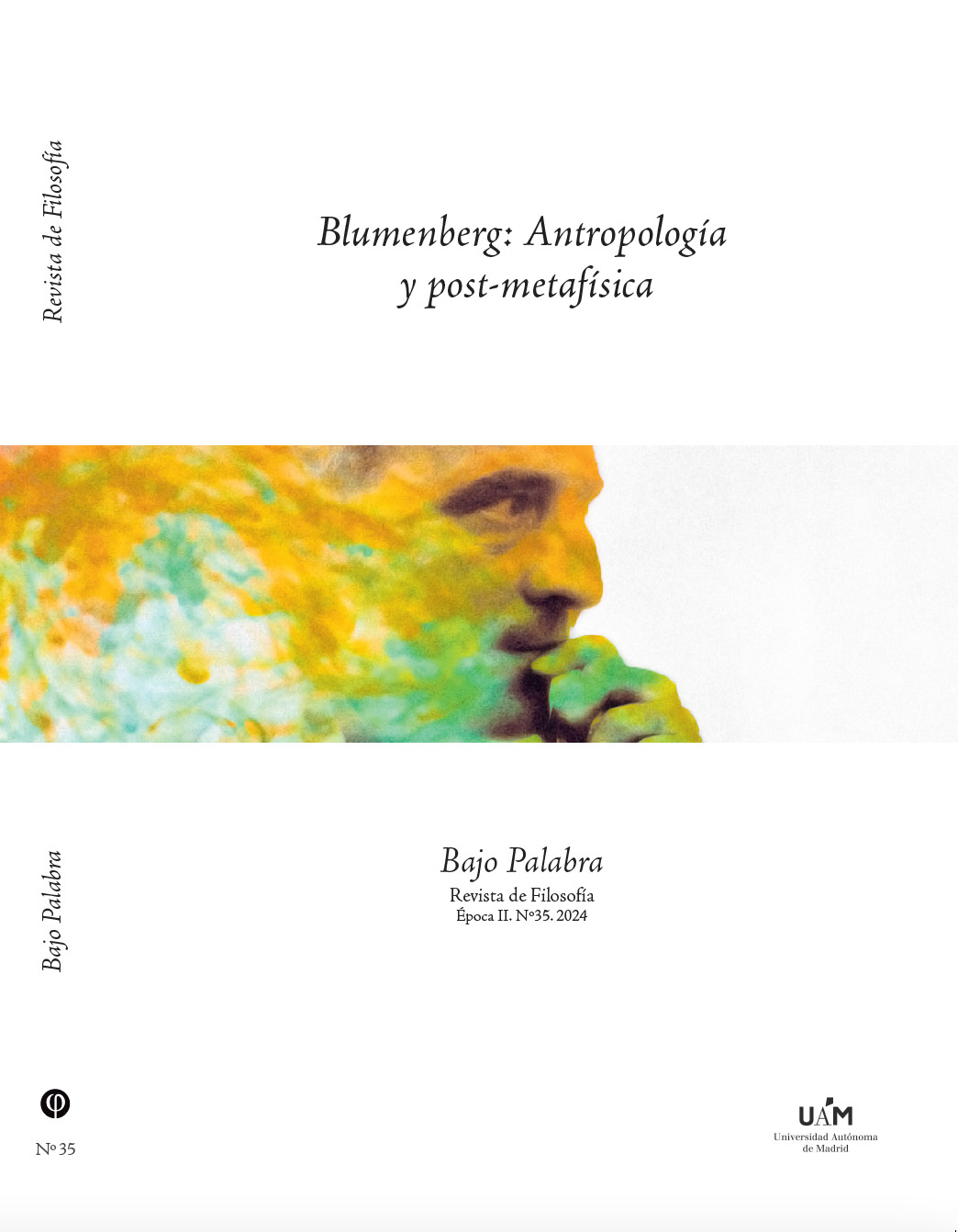Palabras clave:
Blumenberg, Modernidad, Prometeo, Tecnociencia Matematizada, Absolutismo de la RealidadDerechos de autor 2024 Fernando Beresñak, Miranda Bonfil

Esta obra está bajo una licencia internacional Creative Commons Atribución 4.0.
Resumen
Este trabajo explora problemas que se derivan de la relación ambivalente que el ser humano establece con la técnica, recuperando las elaboraciones de Hans Blumenberg sobre al surgimiento de la ciencia moderna. Se comienza realizando un recorrido histórico siguiendo los pasos del filósofo y rescatando observaciones críticas que sus contemporáneos elaboraron en contra de la voluntad autodeificante del ser humano y el ímpetu neutralizador de la técnica. Al avanzar sobre la estructura teórica de Blumenberg, se busca propiciar espacios para pensar las intrincadas formas en que la técnica se vincula con el mundo de la vida en el siglo XXI.
Descargas
Citas
Beresñak, F. (2017). El imperio científico. Investigaciones político-espaciales. Miño y Dávila.
Blumenberg, H. (1955). Der kopernikanische Umsturz und die Weltstellung des Menschen. Eine Studie zum Zusammenhang von Naturwissenschaft und Geistesgeschichte. Studium Generale, 8(10), 637–648.
Blumenberg, H. (1957a). Kosmos und System. Aus der Genesis der kopernikanischen Welt. Studium Generale, 10(2), 61–80.
Blumenberg, H. (1957b). Licht als Metapher der Wahrheit. Im Vorfeld der philosophischen Begriffsbildung. Studium Generale, 10(7), 432–447.
Blumenberg, H. (1965a). Kopernikus im Selbstverständnis der Neuzeit. Akademieder Wissenschaften und der Literatur in Mainz. Abhandlungen der geistes? und sozialwissenschaftlichen Klasse, Jahrgang 1964 (vol. 5).
Blumenberg, H. (1965b). Die kopernikanische Wende. Suhrkamp.
Blumenberg, H. (1968–1969). Wirklichkeitsbegriff und Staatstheorie. Schweizer Monatshefte, 48(2), 121–146.
Blumenberg, H. (1975). Die Genesis der kopernikanischen Welt. Die Zweideutigkeit des Himmels Eröffnung der Möglichkeit eines Kopernikus. Suhrkamp.
Blumenberg, H. (2000). La legibilidad del mundo. Paidós.
Blumenberg, H. (2003). Trabajo sobre el mito. Paidós.
Blumenberg, H. (2008). La legitimación de la Edad Moderna. Pre-Textos.
Copérnico, N. (2001). Sobre las revoluciones (de los orbes celestes). Tecnos.
Chamorro Muñoz, A. N. (2024). Irrumpir en el tiempo que éramos: Metáforas de la tecnología y las transformaciones temporales en las ruinas del mundo. Bajo Palabra, 35(1), 105–120. DOI: https://doi.org/10.15366/bp2024.35.005.
Durán Guerra, L. (2014). Blumenberg y la imagen copernicana del mundo. Comprendre. Revista Catalana de Filosofía, 16(2), 85–95.
Durán Guerra, L. (2024). Presencias del absoluto. Variaciones sobre un tema blumenberguiano. Bajo Palabra, 35(1), 87–104. https://doi.org/10.15366/bp2024.35.004.
García-Durán, P. (2014). Variaciones sobre Prometeo. Narraciones mitológicas sobre la Modernidad en Hans Blumenberg y Carl Schmitt. La torre del Virrey, 15, 16–20.
Goethe, J. W. v. (2017). Poesía y verdad. Alba.
Halley, E. (2011). A esta obra físico-matemática del muy ilustre varón Isaac Newton, honra insigne de nuestro siglo y de nuestro pueblo. En I. Newton, Principios matemáticos de la Filosofía Natural (pp. 95–96). Alianza.
Ingram, D. (1990). Blumenberg and the Philosophical Grounds of Historiography. History and Theory, 29(1), 1–15. https://doi.org/10.2307/2505201
Kroll, J. P. (2010). A Human End to History? Hans Blumenberg, Karl Löwth and Carl Schmitt on Secularization and Modernity. Tesis Doctoral. Universidad de Princeton.
Kuhn, H. y Wiedmann, F. (1964). Die Philosophie und die Frage nach dem Fortschritt. Pustet.
Laleff Ilieff, R. y Ricci Cernadas, G. (2021). Hans Blumenberg, pensador político: Lecturas a cien años de su natalicio. CLACSO UBA/FSOC/IIGG. Löwith, Karl, Meaning in History, Chicago, Chicago University Press, 1949.
Ludueña Romandini, F. (2020). Summa Cosmologiae. Breve tratado (político) de inmortalidad. La comunidad de los espectros IV. Miño y Dávila.
Müller, O. (2008). Natur und Technik als falsche Antithese: die Technikphilosophie Hans Blumenbergs und die Struktur der Technisierung. Philosophisches Jahrbuch, 115(1), 99–124.
Palti, E. J. (1997). In memoriam: Hans Blumenberg (1920-1996), an Unended Quest. Journal of the History of Ideas, 58(3), 503–524. https://doi.org/10.1353/jhi.1997.0029
Quintero Ocampo, O. A. (2024). El pathos heroico en la filosofía de la modernidad temprana: Una lectura blumenberguiana desde el concepto de absolutismo de la realidad. Bajo Palabra, 35(1), 87–104. https://doi.org/10.15366/bp2024.35.004.
Toomer, G. J. (1998). Ptolomey’s Almagest. Princeton University Press.
Schmitt, C. (2009). Teología política. Trotta.
Schmitt, C. (2014). El concepto de lo político. Alianza.
Schmitz, A. y Lepper, M. (2007). Hans Blumenberg. Carl Schmitt. Briefwechsel. Suhrkamp.
Zill, R. (2016). Von der Atommoral zum Zeitgewinn: Transformationen eines Lebensthemas Hans Blumenbergs Projekt einer Geistesgeschichte der Technik. En Technisches Nichtwissen (pp. 291–314), Nomos Verlagsgesellschaft.
